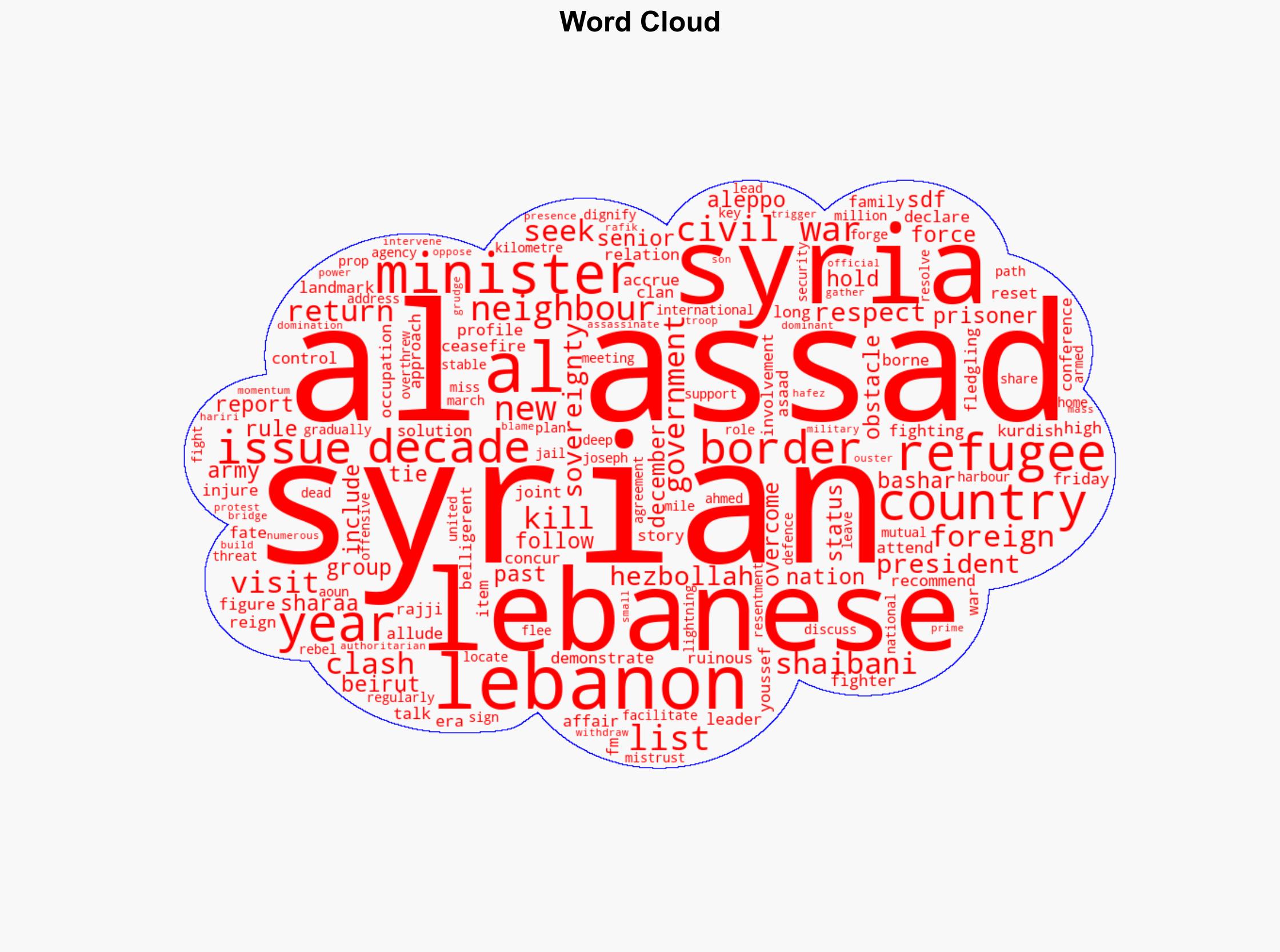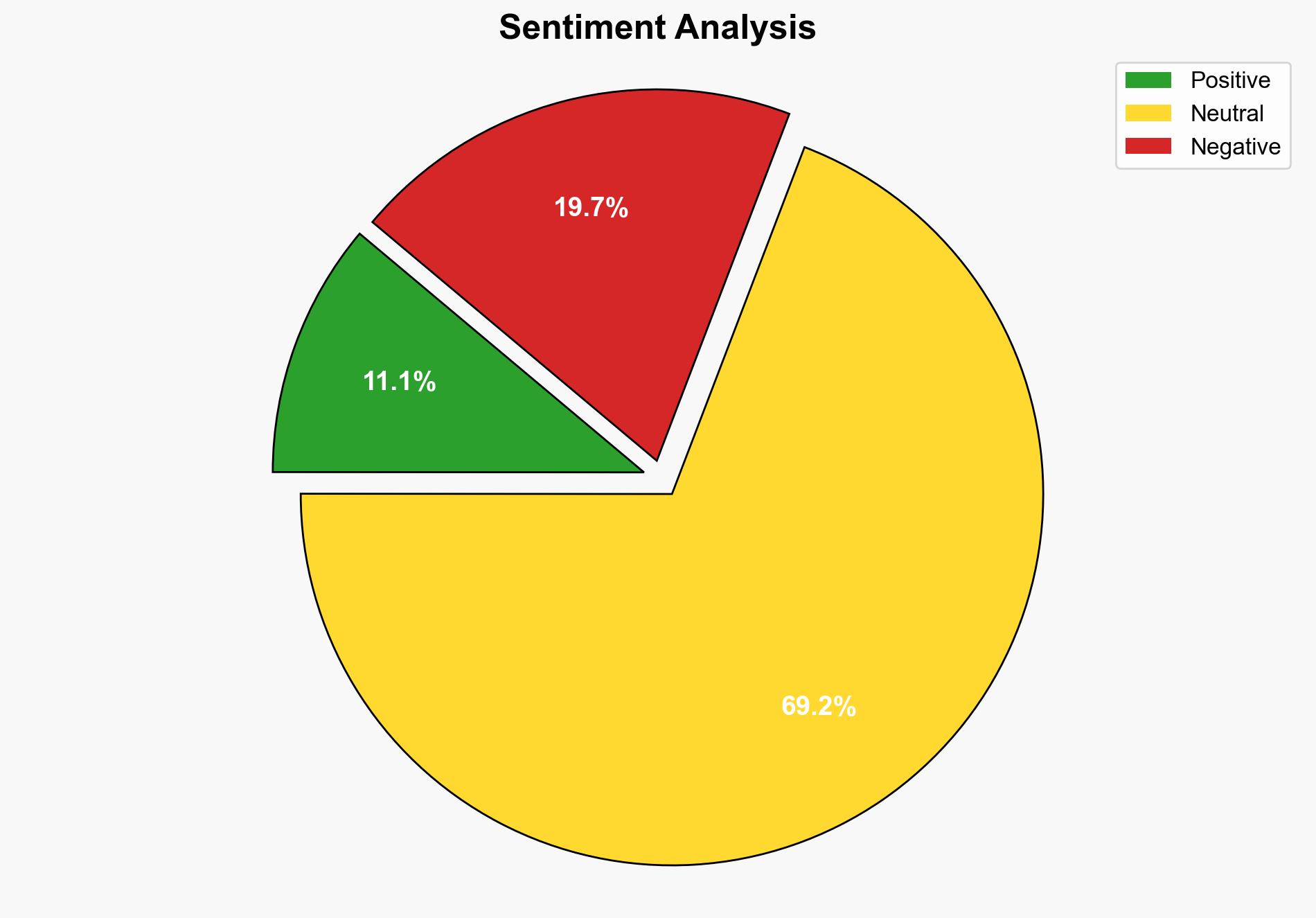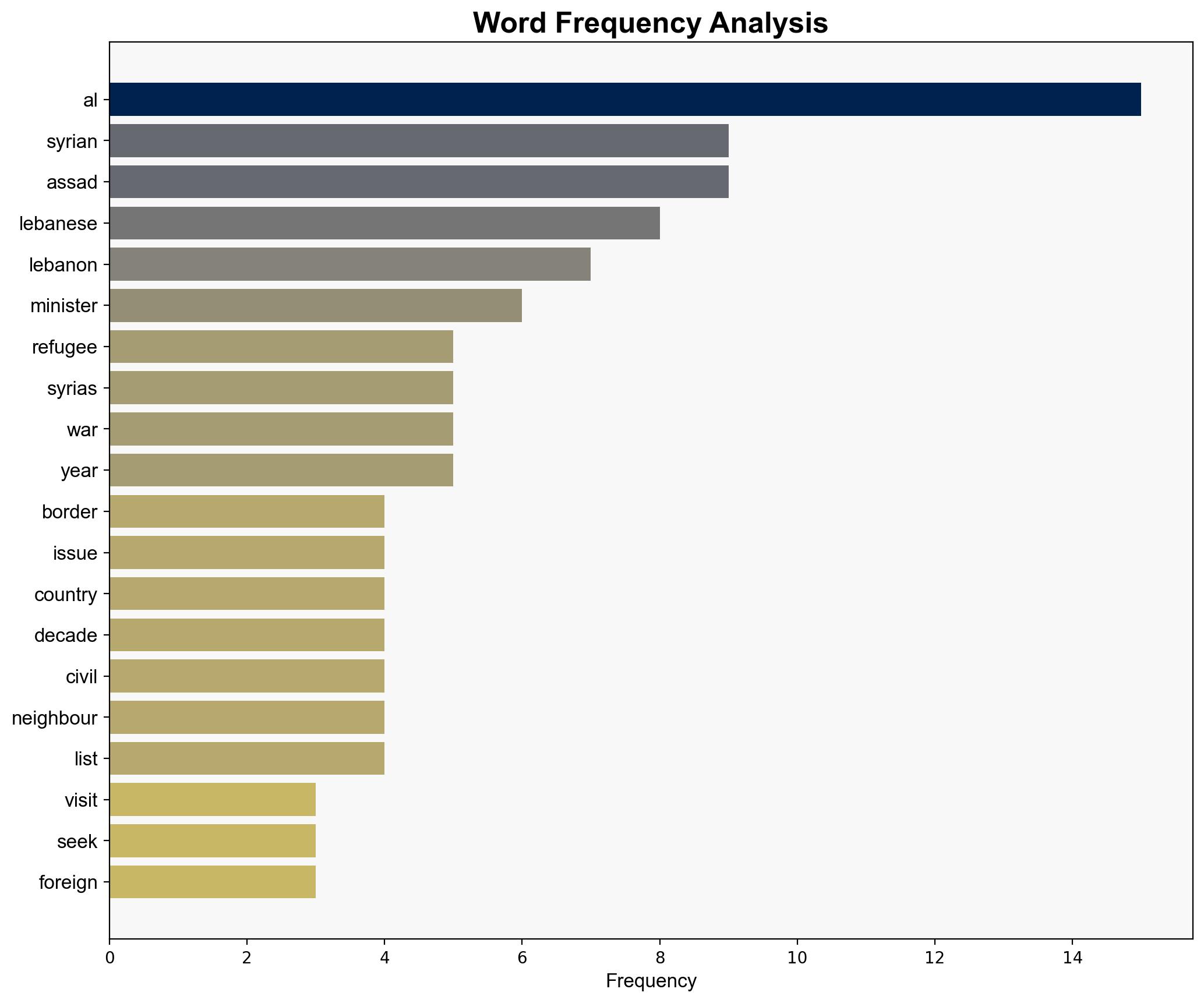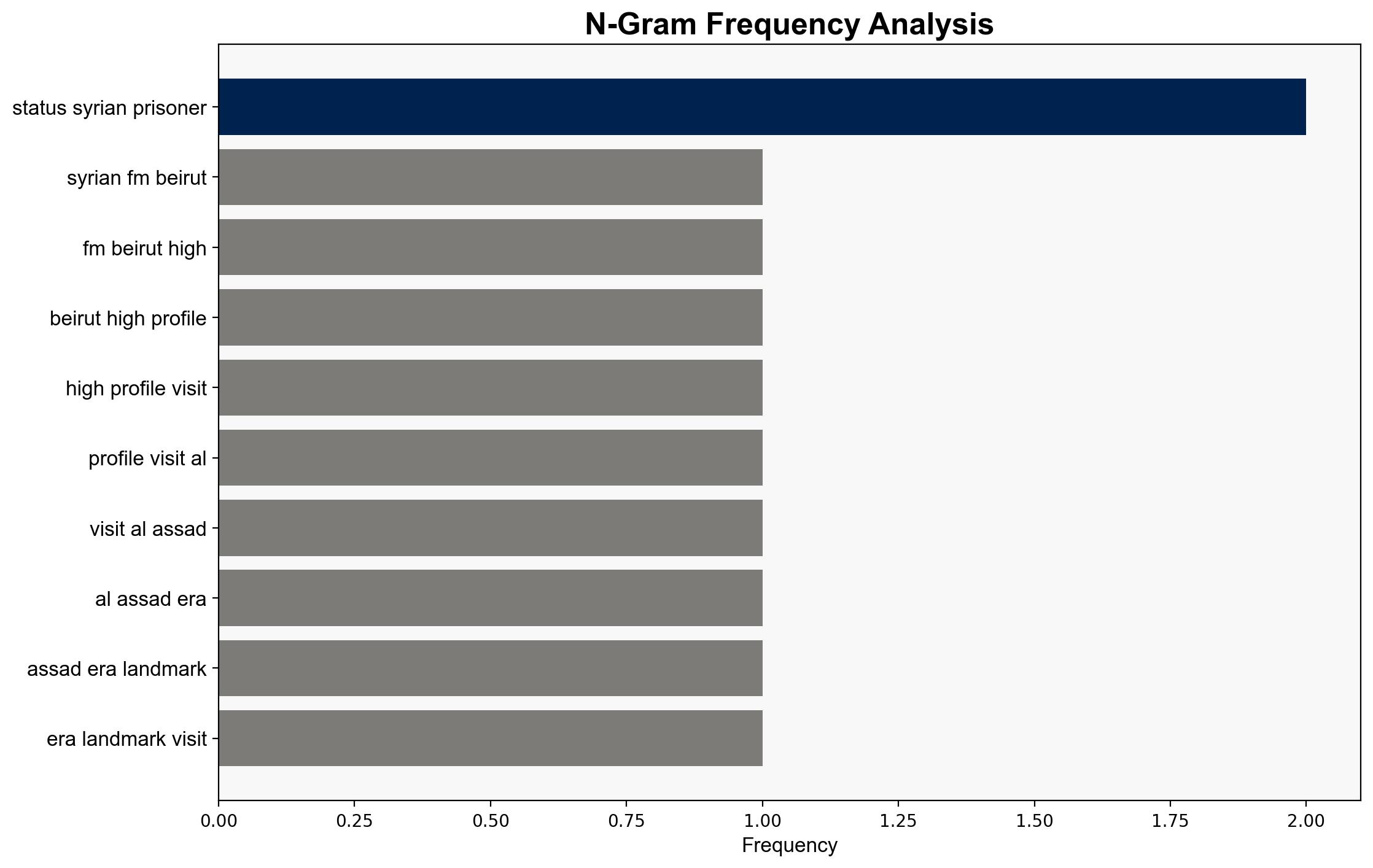Syrian FM in Beirut on first high-profile visit since al-Assad era – Al Jazeera English
Published on: 2025-10-10
Intelligence Report: Syrian FM in Beirut on first high-profile visit since al-Assad era – Al Jazeera English
1. BLUF (Bottom Line Up Front)
The visit of Syria’s Foreign Minister to Beirut marks a potential shift in Syrian-Lebanese relations post-al-Assad. The most supported hypothesis is that Syria is attempting to reset diplomatic ties and address longstanding issues, such as border security and refugee repatriation, to stabilize the region. Confidence in this hypothesis is moderate due to historical complexities. Recommended action includes monitoring the implementation of agreements and assessing regional reactions to gauge the sincerity and impact of Syria’s diplomatic efforts.
2. Competing Hypotheses
Hypothesis 1: Syria aims to genuinely reset relations with Lebanon, addressing border issues and refugee repatriation to foster regional stability and economic recovery.
Hypothesis 2: Syria’s diplomatic overture is primarily a strategic maneuver to regain influence in Lebanon and counterbalance the loss of Hezbollah as a major ally post-al-Assad.
Using ACH 2.0, Hypothesis 1 is better supported by the explicit mention of agreements on border security and refugee issues, as well as the presence of high-level discussions. Hypothesis 2 is less supported but plausible given Syria’s historical influence in Lebanon and the strategic importance of maintaining regional leverage.
3. Key Assumptions and Red Flags
Assumptions include the belief that Syria’s intentions are transparent and that Lebanon is receptive to resetting ties. A red flag is the potential underestimation of internal opposition within Lebanon, especially from factions resentful of past Syrian dominance. The absence of detailed implementation plans for agreements raises questions about the feasibility of stated goals.
4. Implications and Strategic Risks
Successful Syrian-Lebanese rapprochement could stabilize border regions and facilitate refugee returns, reducing regional tensions. However, failure to address underlying mistrust or a perceived Syrian overreach could exacerbate internal Lebanese divisions and destabilize the government. The geopolitical balance in the region could shift, affecting alliances and security dynamics.
5. Recommendations and Outlook
- Monitor the execution of border and refugee agreements to assess commitment levels.
- Engage with Lebanese stakeholders to understand domestic perceptions and potential resistance.
- Scenario Projections:
- Best Case: Successful diplomatic reset leads to regional stability and economic cooperation.
- Worst Case: Syrian influence efforts backfire, leading to internal Lebanese conflict and regional instability.
- Most Likely: Incremental progress with periodic setbacks due to historical grievances and political complexities.
6. Key Individuals and Entities
– Asaad al-Shaibani (Syrian Foreign Minister)
– Youssef Rajji (Lebanese Foreign Minister)
– Joseph Aoun (Lebanese President)
– Ahmed al-Sharaa (Syrian President)
7. Thematic Tags
national security threats, regional diplomacy, refugee crisis, border security





